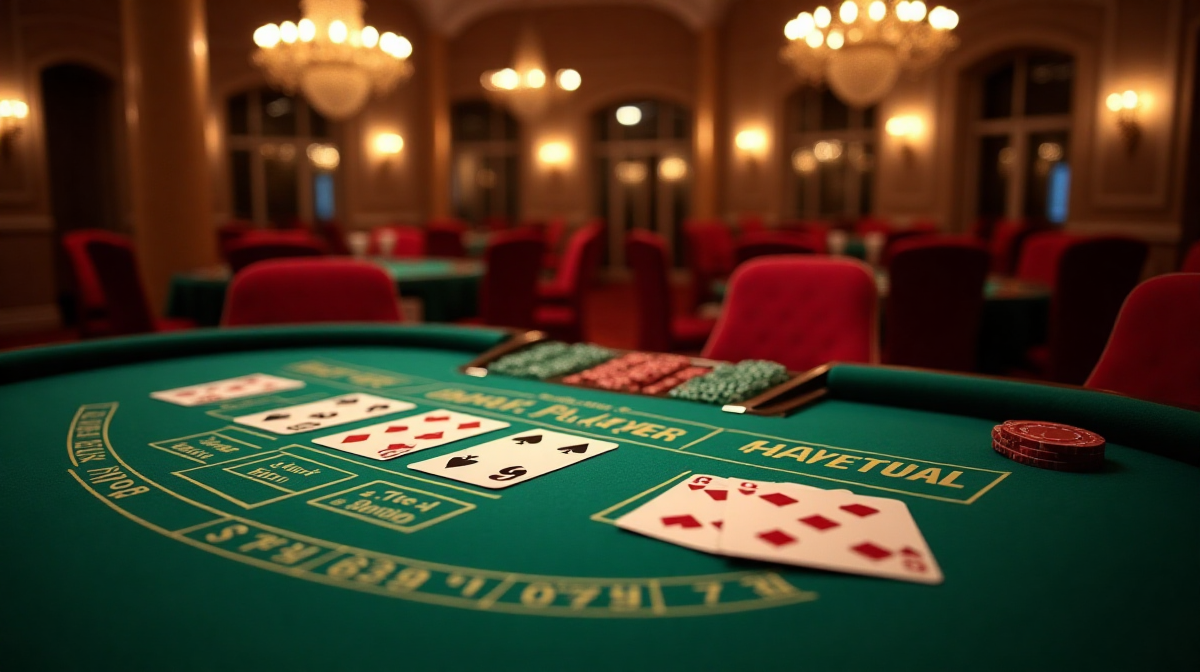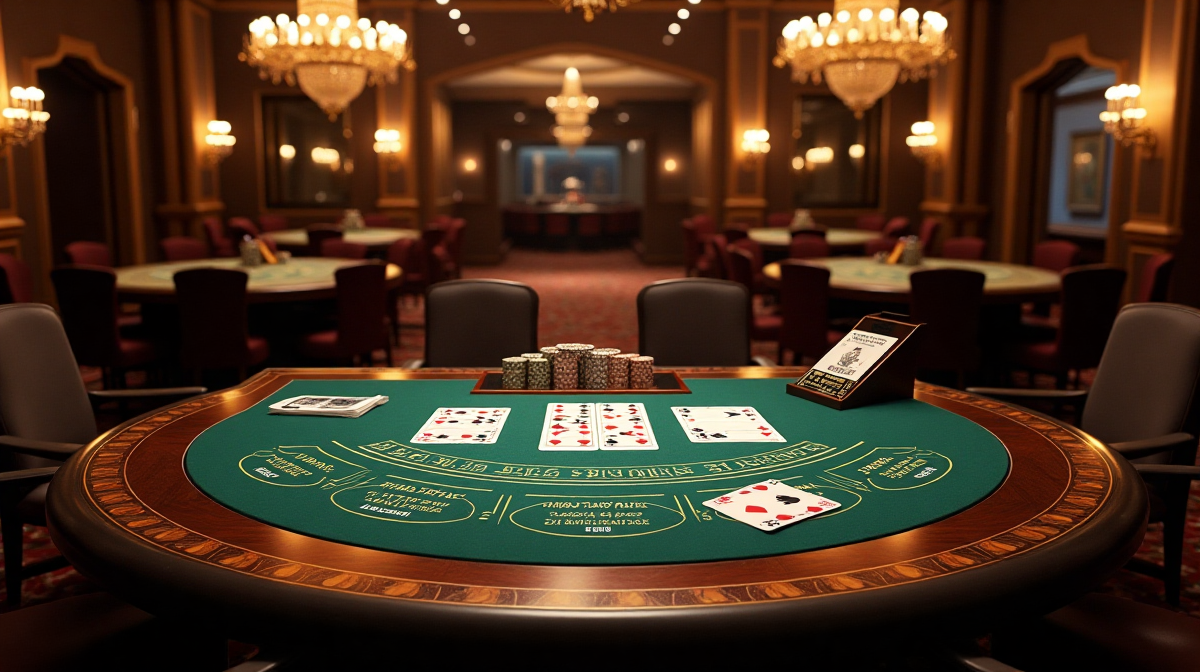Baccarat Rules: A Beginner's Guide
Introduction to Baccarat
What is Baccarat? - A brief history and overview.
Baccarat, a game steeped in history and elegance, is often associated with high-stakes casinos and sophisticated players. Its origins can be traced back to 19th-century France, evolving from a game known as chemin de fer. Despite its glamorous reputation, the core gameplay is surprisingly simple. The objective is to bet on which of two hands – the Player or the Banker – will have a total closest to nine. Interestingly, the term “4Bet” frequently arises in poker discussions, but its relevance to baccarat lies in the strategic consideration of risk and potential reward inherent in any betting scenario.
Why is Baccarat Popular? - Appeal at casinos & online.
Baccarat’s popularity stems from its blend of simplicity and excitement. The game requires minimal player input, making it accessible to beginners, yet offers enough strategic nuance to keep experienced gamblers engaged. The relatively low house edge, particularly on Banker bets, also contributes to its appeal. Furthermore, its presence in popular culture, notably its association with James Bond, has cemented its image as a game of sophistication. Today, baccarat is widely available in both land-based casinos and online platforms, with live dealer versions offering an immersive experience. Online variations often incorporate features that mimic the feel of a real casino, adding to the experience, and sometimes even allow for different betting limits, exploring options like a bet 4bet – a larger wager based on initial success.
Dispelling Common Myths about Baccarat - James Bond & high roller image.
The image of Baccarat as solely a game for high rollers is a common misconception fueled by its portrayal in films and its historical association with the wealthy elite. While high-stakes baccarat exists, many casinos and online platforms offer tables with lower minimum bets, making it accessible to players of all budgets. The game doesn’t require complex strategies or extensive knowledge to enjoy. The perception that Baccarat is difficult to learn is simply untrue; understanding the baccarat rules is relatively straightforward.
Understanding the Basics
The Players: Player, Banker, and Tie
In Baccarat, there are three possible outcomes you can bet on: the Player, the Banker, or a Tie. It's important to note that the Player and Banker are not actual people; they are simply sides that receive the cards. The dealer manages both hands according to a strict set of rules.
Card Values in Baccarat - How cards are scored .
Card values are simple: cards 2-9 are worth their face value. Tens, Jacks, Queens, and Kings are all worth zero. Aces are worth one. The hand total is calculated by adding the values of the cards, and only the units digit is considered. For example, a hand of 7 and 8 equals 15, but the hand value is 5.
The Goal of the Game - Getting closest to 9.
The objective of Baccarat is to predict which hand, the Player or the Banker, will have a total closest to nine. It's not about reaching nine exactly, but about getting as close as possible.
Baccarat Terminology - Punto, Banco, Natural, etc.
- Punto: The Player's hand.
- Banco: The Banker's hand.
- Natural: A hand with a total of 8 or 9 from the initial two cards dealt.
- Tie: When both the Player and Banker hands have the same total.
- Some variations, like 4bet igre found in certain regions, may introduce unique side bets or rules.

Gameplay: A Step-by-Step Guide
The Deal - How cards are initially distributed.
The game begins with the dealer dealing two cards face up to both the Player and the Banker.
The First Card Draw - Banker and Player rules.
Based on the initial two cards, a third card may be dealt to either the Player or the Banker, according to a predetermined set of rules.
The Third Card Rule – Detailed explanation of when cards are drawn . Include charts for clarity.
The Third Card Rule is the most complex aspect of Baccarat.
Player:
- If the Player's initial total is 6 or 7, no third card is drawn.
- If the Player's initial total is 0-5, a third card is drawn unless the Banker has a Natural (8 or 9).
Banker:
The Banker's third card draw is more complex and depends on the Player's third card and the Banker's initial total. (Detailed charts are readily available online to illustrate this.)
Understanding the Hand Totals - Calculating the final hand value.
After any third cards are dealt, the hand totals are calculated as described earlier (only the units digit is considered). The hand with the total closest to nine wins.
Betting Options & Payouts
Betting on the Player - Odds and commission.
A bet on the Player pays 1:1 (even money).
Betting on the Banker - Odds and commission .
A bet on the Banker also pays 1:1, but a 5% commission is deducted from winnings. This commission accounts for the Banker's slight statistical advantage.
Betting on a Tie - Odds and commission .
A bet on a Tie pays 8:1 or 9:1, depending on the casino. However, the odds of a Tie are significantly lower than those of the Player or Banker, making it a high-risk, high-reward bet.
Understanding the House Edge - Breakdown for each bet.
- Player bet: Approximately 1.24% house edge.
- Banker bet: Approximately 1.06% house edge.
- Tie bet: Approximately 14.36% house edge.
Different Baccarat Variations
Punto Banco – Most common version.
This is the most widely played version of Baccarat, particularly in North America. It follows the standard rules outlined above.
Chemin de Fer – Player vs. Player version.
In Chemin de Fer, players compete directly against each other, taking turns being the Banker.
Baccarat Banque – Similar to Chemin de Fer, with a permanent Banker.
Similar to Chemin de Fer, but the Banker position rotates less frequently.
Mini-Baccarat – Smaller table, faster pace.
Mini-Baccarat is a faster-paced version played on a smaller table.
Baccarat Strategy
Why Card Counting Doesn't Work in Baccarat.
Unlike card games like Blackjack, card counting is ineffective in Baccarat because the dealing of cards is largely predetermined by the Third Card Rule, and the previous cards have minimal impact on future outcomes.
Basic Baccarat Betting Strategies - Martingale, Paroli .
Strategies like the Martingale (doubling your bet after each loss) and the Paroli (doubling your bet after each win) can be employed, but they are inherently risky and do not guarantee success.
Bankroll Management Tips - Responsible gaming.
It's crucial to set a budget and stick to it, regardless of whether you're playing online or in a land-based casino.
Recognizing Patterns .
Many players attempt to identify patterns in Baccarat results, but due to the randomness of the game, these patterns are often illusory.

Playing Baccarat Online
Choosing a Reputable Online Casino.
Ensure the online casino is licensed and regulated by a reputable authority.
Live Dealer Baccarat – Real-time experience.
Live dealer Baccarat offers a more immersive experience, with a real dealer dealing the cards in real-time.
Online vs. Land-Based Baccarat – Differences to consider.
Online Baccarat is often faster-paced and offers lower minimum bets than land-based Baccarat.
Frequently Asked Questions
What’s a “Natural” in Baccarat?
A “Natural” is a hand with a total of 8 or 9 from the initial two cards dealt.
Can I influence the outcome of the game?
No, Baccarat is primarily a game of chance. The dealer follows a strict set of rules for dealing cards, and players have no control over the outcome.
Is there a foolproof Baccarat strategy?
No, there is no foolproof Baccarat strategy.
What is the house edge in Baccarat?
The house edge varies depending on the bet: approximately 1.24% for the Player bet, 1.06% for the Banker bet, and 14.36% for the Tie bet.
Conclusion
Final Thoughts on Learning Baccarat
Baccarat is a captivating game with a rich history and simple rules. While luck plays a significant role, understanding the baccarat rules and various betting options can enhance your enjoyment. Even the consideration of when to attempt a more aggressive 4Bet type strategy can add another layer of enjoyment.
Resources for Further Learning.
Numerous online resources and guides are available to help you further explore the world of Baccarat, including tutorials and strategy articles.


